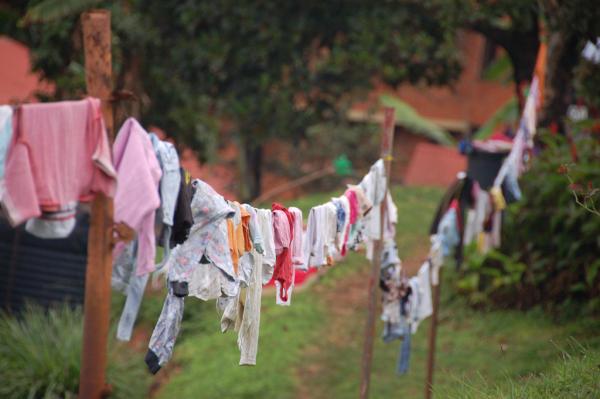In comparison to the numerous considerations that must be taken into account when choosing an international volunteer program—from the reputability of the organization, to the nature and scope of the work—volunteer living arrangements are often an afterthought.
For the past four weeks, I have been living with a family in a residential area of Zanzibar City, just outside of Stone Town. YCI uses a homestay model for its volunteers and at the halfway point in my posting, I have come to realize that my living situation has coloured my experience just as much as the work itself.
As a result, for those considering a homestay during their international volunteer placement, I would like to offer my following reflections on the challenges and benefits of the homestay experience:
Degrees of Independence and Privacy
Living in a homestay means living on another family’s schedule and being in their space—for me, this has meant a shared bathroom between five kids and myself (read: morning pandemonium), shared laundry arrangements and scheduled meal times. It also means letting my homestay family know when I am coming and going, particularly if I am planning on missing dinner or staying out late, to minimize worry and help them plan accordingly.
The switch back to living under someone else’s roof can feel restrictive at times—a kind of regression back to adolescence. At the same time, maintaining quiet personal space and time can also be very difficult, particularly in a household of curious young children.
Balancing these challenges, I have had the great fortune of being included in the family’s daily life—an enriching immersion experience which transcends any cultural learning opportunities I could encounter as a volunteer living on my own. As a solo traveller, there is also a certain comfort in knowing that you have a family who is looking out for you and wants to facilitate your health, happiness and safety in a totally unfamiliar environment.
Linguistic and Cultural Immersion
Living in a homestay means that you are thrown headfirst into a new cultural and linguistic context—a “sink or swim” scenario. Faced with significant language barriers, there have been many moments when I feel frustrated, left out or just simply foolish. There is a certain awkwardness that accompanies participating in a family dinner, but not understanding what is being said. It can also be difficult to feel totally relaxed at times when trying to actively think about and adhere to cultural norms—such as eating with or extending the right hand only.
On the positive side, I feel that my homestay immersion has promoted much more rapid language acquisition, with mutual benefit to both me and my homestay family. By teaching each other, we expand our respective knowledge of Swahili and English.
I have also had the opportunity to discuss and ask questions about everything from religion to local politics with my homestay parents and to experience aspects of the culture that would not otherwise be accessible to me. For example, rather than simply hearing about the practice of polygamous marriage in Zanzibar, I have been able to directly observe how this type of marriage operates and to ask my Mama and Baba about their experience and reasons for entering into this type of relationship.
Living Like a Local
Another major aspect of the homestay experience is the chance to live like a local, which comes without many of the comforts that those raised in the Western World have come to expect. Within my household, there are frequent power outages and a current lack of running water. Food can also be an adjustment. My homestay family provides breakfast and dinner for me, and I have had to adapt to different dietary staples and less control over what I eat. For my fellow volunteers, vegetarianism and other dietary restrictions may not be understood by the homestay hosts and can be a struggle.
On the positive side, I have benefitted from having amazing home-cooked food and the chance to learn more about Swahili cooking. Living in a homestay family has also given me insight into the daily challenges that families in the local neighbourhood face on a daily basis—for instance, preparing meals with no electricity or running water.
Inequalities and Expectation
Perhaps the biggest challenge of living in a homestay is that it forces you to reckon with the inequities between you and your local family. Although you are living with and sharing the daily reality of a local family, the truth is that you are a wealthy foreigner who comes into the household carrying unearned advantages, gadgets and luxuries.
As an international volunteer, you also stand as an example of other foreigners and Canadians, and must be self-aware and mindful about what image you project to your homestay family. In homestay families such as mine, which has hosted a number of volunteers in the past, it can be challenging to face the existing ideas and expectations about who you are, what you have, and what you will do for the family that have been influenced by previous volunteers. For example, using gadgets/electronics as a means to bond with the children in the household, or sharing prescription medicines with the family.
On the converse, I can say that I am at least getting a small taste of the local reality, and the opportunity to become more self-aware, more critical, and more reflective about the privileges that have been afforded to me and the “birth lottery” that exists in the world. At the very least, living in a homestay opens the window to these self-revelations that another form of accommodation might not.
Add this article to your reading list




